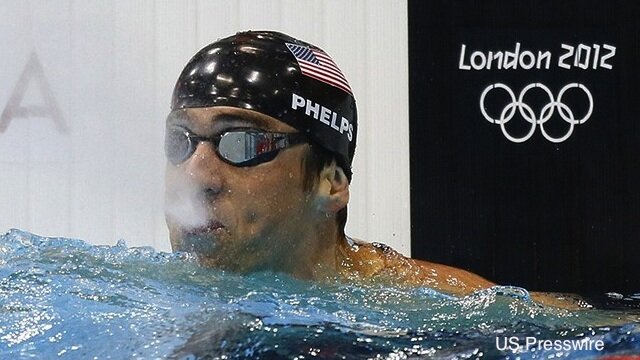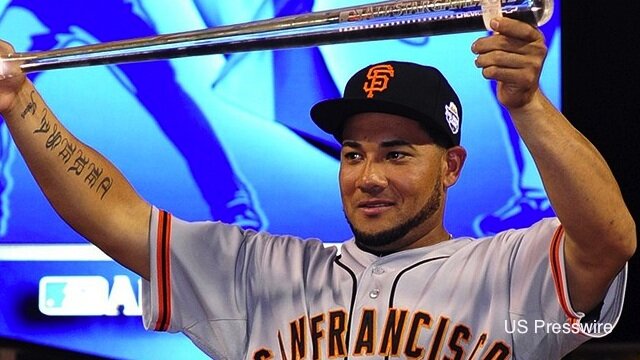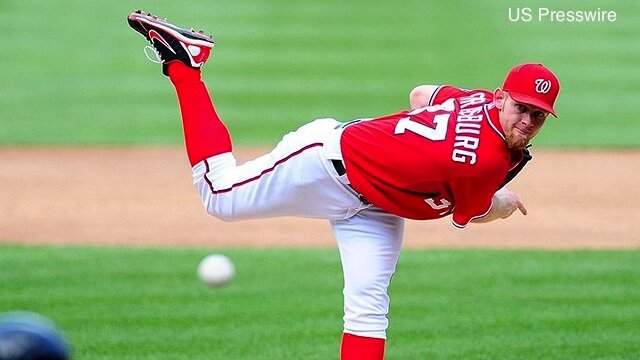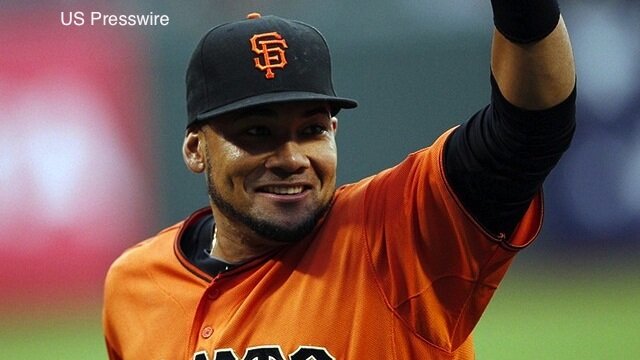Who’s the Real American League MVP: Mike Trout or Miguel Cabrera?

There’s still over a month to be played in the 2012 regular season, and the race for this year’s American League MVP is growing extremely close. Los Angeles Angels of Anaheim outfielder Mike Trout seemed to be the runaway favorite but Detroit Tigers third baseman Miguel Cabrera has pulled his way right into the thick of the race.
A Breakdown of Their Numbers
Mike Trout: .343/.407/.604, 23 HR, 69 RBI, 39-42 SB, 1.010 OPS, 182 adjusted OPS
Miguel Cabrera: .332/.396/.594, 31 HR, 104 RBI, 4-5 SB, .990 OPS, 163 adjusted OPS
Trout wasn’t expected to play a role on the big league team this year but since the Angels called him up in late April, Trout has been unstoppable. He is leading the American League in batting average, which would be a remarkable feat for a barely-21 year old to win the batting title. Trout can pretty much do everything he wants on a baseball field – he hits for average, he displays unbelievable raw power for such a young player, he can run and steal bases with the best of them (his 92 percent success rate is off the charts), he’s grounded into just four double plays, and he’s leading the league in runs scored, stolen bases, batting average, and adjusted OPS.
Cabrera has always been a league MVP candidate, although surprisingly, he’s never won it. Cabrera has registered MVP votes in all nine seasons of his major league career thus far, finishing in the top five on five separate occasions and runner-up once. Cabrera was flat out born to play baseball, and his .332 batting average, 31 home runs, and 104 RBIs in just three-quarters of a season thus far are in a class with Albert Pujols in his prime. Cabrera is leading the AL in games played, RBIs, and total bases. He does lead the league in double plays grounded into (21), which might be a product of being a relatively slow right-handed hitter, but that’s just a small weakness in an unbelievable season.
The Sabermetrics
Mike Trout: 7.4 WAR, .391 BABIP, .817 offensive win %
Miguel Cabrera: 5.4 WAR, .333 BABIP, .743 offensive win %
Trout is leading all of the major leagues with 7.4 WAR for the season, and he wasn’t even called up to the team until late April. His 7.4 WAR averages out to about one-thirteenth of a win per game played, meaning every 13 games he plays Trout’s value adds one extra win to the Angels. If he had played the entire season, Trout would have 9.14 WAR for the year. If you take that value and prorate it to a full season, Trout finishes with 12.23 WAR.
Last year, Jacoby Ellsbury led all major league players with a WAR of 9.4. When Alex Rodriguez hit 54 home runs and drove in 156 runs in 2007, his WAR was “only” 9.8. The highest mark Pujols has ever had in a season was 10.1 (2003). When Barry Bonds batted .362 with league-records in walks (232) and on-base percentage (.609) in 2004, his WAR was still just 11.9. The last major league player to finish with a WAR of at least 12.2 (FanGraphs does just one decimal point) was Bonds in 2002, when he put up 12.5 after putting up 12.9 in 2001 when he hit 73 home runs.
Trout’s WAR is his strongest case by far, and it shows how much of a complete player he is – he can hit, hit for power, play the field, and run the bases extraordinarily well. Trout is getting pretty lucky with a .391 batting average on balls in play, a figure that ranks second-best among all major league players (behind just the .402 put up by Andrew McCutchen).
Baseball historian Voros McCracken (yes, that was his real name) determined that the statistic batting average on balls in play is largely a product of luck. Batters can control it to a certain extent by the percentage of line drives they hit or by minimizing their infield pop ups, but ground balls finding their way through the infield or bloop hits landing just out of the reach of outfielders is something a hitter cannot control. And Trout is getting very fortunate this season. He has tremendous speed which means he is going to beat out a higher percentage of grounders than Adam Dunn would but Trout is also benefiting from an unmaintable BABIP. Check back at the end of the year, and there’s no way Trout will still have a .392 BABIP. And that’s directly spiked his batting average, slugging percentage, and OPS, which in turn, have contributed to a higher WAR.
Trout’s .817 offensive win percentage means a team made up entirely of Mike Trouts in the field and an average pitching staff would win 81.7 percent of their games. That’s a pretty dominating figure, as it rates as the 216th best single-season total ever and the eighth-best total by an American League player since 2000. That doesn’t quite sound as dominating as you would expect but I highly doubt any of those other players played the defense Trout does.
Meanwhile, Cabrera has a WAR of 5.4, a total that puts him on pace for 7.3 this season. That’s a typical season for Cabrera, although that doesn’t mean it isn’t truly spectacular. Cabrera’s current WAR ranks just sixth among all major league position players – behind Trout, McCutchen (6.3), David Wright (5.9), Ryan Braun (5.9), and Michael Bourn (5.7). Cabrera’s .333 BABIP is actually the lowest total he’s put up since 2008 and 13 points below his career average, so it’s not as if he is benefiting from a bunch of lucky hits (not that Trout is getting all luck). And Cabrera’s offensive win percentage of .743 ranks just fourth in the league, behind Trout, David Ortiz, and Edwin Encarnacion.
Defense
Mike Trout: 5.8 FLD (per FanGraphs), 1.6 DWAR (Baseball Reference), 8.5 UZR/150
Miguel Cabrera: -5.1 FLD (per FanGraphs), 0.2 WAR (Baseball Reference), -8.5 UZR/150
Trout rates very admirably on his defense no matter which website or statistic you use. He has the versatility to play all three outfield positions, notably center field, where he’s made his mark by robbing a ridiculous three home runs from opposing hitters – including this catch.
He has a strong arm, covers a lot of ground in the outfield, and has added 1.6 defensive wins to the Angels, per Baseball Reference. His 8.5 UZR/150 – a statistic that measures overall defensive effectiveness – grades Trout as the sixth-best overall outfielder in the American League on defense.
Cabrera is subpar defensively, and he really should be playing first base, but when the Tigers acquired Prince Fielder, that all but sent Cabrera across the diamond to third base. Cabrera rates poorly per FanGraphs’ standards, slightly above average by Baseball Reference, and poorly once again by Ultimate Zone Rating per 150 games.
Overall Value
I’m going without statistics for this one. But in terms of value to his team, it’s tough to top what Trout has done. He wasn’t expected to play in the major leagues this year – at least not right away anyway – and he’s now the best overall player on his team. Trout has filled in at left field, center field, and right field, and the fact that the Angels have been able to play Trout rather than Vernon Wells (.221, eight home runs, .647 OPS for $21M) or Peter Bourjos (.227, three home runs, .612 OPS) has made a hugely positive impact on the team.
Cabrera does get some credit himself though for his willingness to move across the diamond to third base to accommodate the addition of big man teammate Fielder. Cabrera hasn’t played third base for so much as an inning since 2008 and he hasn’t played that as his regular position since ’07 when he was back on the Florida Marlins. And he’s not great defensively, but he’s not bad enough to cost the Tigers on a regular basis, and the team really does need his bat in the lineup.
The Verdict
As a general rule, I think you could make a strong case for whichever player leads his respective league in OPS as the league MVP. Then again, that would be a guy who isn’t even in the discussion for right now (David Ortiz), but Ortiz won’t win it because the Boston Red Sox won’t sniff the playoffs and Ortiz doesn’t even play the field.
Trout does have a higher OPS right now than Cabrera by 20 points, although it’s gotten a lot closer since the end of July, when Trout was at 1.019 and Cabrera was 62 points behind him at .957. Since then, Trout has hit “only” .299 with a .970 OPS after batting .353 with a 1.019 OPS in the first four months of the season.
Cabrera has gone on a tear though, checking in at a .397 line with a ridiculous 1.202 OPS. Cabrera has collected two-hit games in 10 of his 16 contests in August, hitting six home runs, driving in 19 runs, and helping the Tigers go 10-6 to move them within 1.5 games of the Chicago White Sox for the AL Central lead. If the Tigers make the playoffs, that’s really going to help his case, especially if Cabrera keeps up his hot streak down the stretch. He has the lowest OPS of his career in September (.907) but I don’t know if that really means he tires down more than the simple fact that one month has to be lower than the rest.
Trout gets a lot of credit for pushing the Angels right back into the division though, as the team was 6-14 when he was called up and was over .500 by the conclusion of his first full month. Trout has helped the Angels go 56-45 since he was promoted, and that’s a .554 winning percentage that would translate to a 67-53 mark for the season. If that was the case, the Angels would be in the lead for the AL wild card race and still just three games back of the Texas Rangers in the AL West race.
So far, I think Cabrera may have a slightly superior offensive case, and if he wins the AL Triple Crown (a possibility considering he does rank fourth in the league in home runs, first in RBIs, and second in batting average), that will go a long way to securing his first MVP trophy. But Trout has the rookie edge, the fact that he’s made his share of highlight reel catches on his defense, and he’s doing things no player has ever done before – he is on track to be the first major league player ever to hit at least .340 with 25 home runs and 40 stolen bases in a season. He also will likely get a little extra credit for the fact that he shouldn’t even be in the major leagues, and Trout still has a month or more to add to the legend that is Mike Trout.
September will be a pivotal month for these two. If Trout’s BABIP dips as expected, causing a decline in his batting average and WAR, Cabrera could pass him. People remember the finish stronger than the beginning, and there’s a good chance that whichever player is still playing when October baseball rolls around will be the one bringing home the MVP award. As of now, I’ll put my money on Trout maintaining his slight edge, but it’s going to be very very close.



